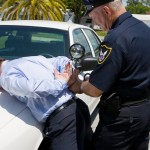 The issue on the constitutionality of death penalty had previously been argued before the Privy Council in the case of Ong Kee Chuan v. Public Prosecutor [1981] 1 MLJ 64 PC. In actual fact this was a case of appeal from Singapore under the Misuse of Drugs Act 1973 to the Privy Council. However, the Privy Council in their judgment ruled that the death penalty was constitutional. Now, cases are no more heard before the Privy Council in the United Kingdom and therefore the highest court where litigants could be heard now in all legal matters are before the Federal Court only. By Voon Lee Shan in the Federal Court In the Federal Court sitting at Kuching on 1st October, 2012 the issue on the constitutionality of the death penalty was again raised before five judges in the Federal Court Criminal Appeal Case No: 05-234-09/2011(Q) in Chung Ngee Hong v. Public Prosecutor in a dangerous drugs case under section 39B(2) of the Dangerous Drugs Act 1952 which carries the mandatory sentence of death upon conviction. Death Penalty Arbitrary, Unfair or Unjust It was argued before the Federal Court that the death penalty under the Dangerous Drugs Act 1952 is arbitrary, unfair […] read more
The issue on the constitutionality of death penalty had previously been argued before the Privy Council in the case of Ong Kee Chuan v. Public Prosecutor [1981] 1 MLJ 64 PC. In actual fact this was a case of appeal from Singapore under the Misuse of Drugs Act 1973 to the Privy Council. However, the Privy Council in their judgment ruled that the death penalty was constitutional. Now, cases are no more heard before the Privy Council in the United Kingdom and therefore the highest court where litigants could be heard now in all legal matters are before the Federal Court only. By Voon Lee Shan in the Federal Court In the Federal Court sitting at Kuching on 1st October, 2012 the issue on the constitutionality of the death penalty was again raised before five judges in the Federal Court Criminal Appeal Case No: 05-234-09/2011(Q) in Chung Ngee Hong v. Public Prosecutor in a dangerous drugs case under section 39B(2) of the Dangerous Drugs Act 1952 which carries the mandatory sentence of death upon conviction. Death Penalty Arbitrary, Unfair or Unjust It was argued before the Federal Court that the death penalty under the Dangerous Drugs Act 1952 is arbitrary, unfair […] read more Constitutionality of Death Penalty
 The issue on the constitutionality of death penalty had previously been argued before the Privy Council in the case of Ong Kee Chuan v. Public Prosecutor [1981] 1 MLJ 64 PC. In actual fact this was a case of appeal from Singapore under the Misuse of Drugs Act 1973 to the Privy Council. However, the Privy Council in their judgment ruled that the death penalty was constitutional. Now, cases are no more heard before the Privy Council in the United Kingdom and therefore the highest court where litigants could be heard now in all legal matters are before the Federal Court only. By Voon Lee Shan in the Federal Court In the Federal Court sitting at Kuching on 1st October, 2012 the issue on the constitutionality of the death penalty was again raised before five judges in the Federal Court Criminal Appeal Case No: 05-234-09/2011(Q) in Chung Ngee Hong v. Public Prosecutor in a dangerous drugs case under section 39B(2) of the Dangerous Drugs Act 1952 which carries the mandatory sentence of death upon conviction. Death Penalty Arbitrary, Unfair or Unjust It was argued before the Federal Court that the death penalty under the Dangerous Drugs Act 1952 is arbitrary, unfair […] read more
The issue on the constitutionality of death penalty had previously been argued before the Privy Council in the case of Ong Kee Chuan v. Public Prosecutor [1981] 1 MLJ 64 PC. In actual fact this was a case of appeal from Singapore under the Misuse of Drugs Act 1973 to the Privy Council. However, the Privy Council in their judgment ruled that the death penalty was constitutional. Now, cases are no more heard before the Privy Council in the United Kingdom and therefore the highest court where litigants could be heard now in all legal matters are before the Federal Court only. By Voon Lee Shan in the Federal Court In the Federal Court sitting at Kuching on 1st October, 2012 the issue on the constitutionality of the death penalty was again raised before five judges in the Federal Court Criminal Appeal Case No: 05-234-09/2011(Q) in Chung Ngee Hong v. Public Prosecutor in a dangerous drugs case under section 39B(2) of the Dangerous Drugs Act 1952 which carries the mandatory sentence of death upon conviction. Death Penalty Arbitrary, Unfair or Unjust It was argued before the Federal Court that the death penalty under the Dangerous Drugs Act 1952 is arbitrary, unfair […] read more What You Must Know About Police Report!
 How Important Is A Police Report? Lodging police report is a simple thing, but, not that simple! Many times people complained that police did not act on reports lodged by them. The blame was on the police, not themselves. This is not correct. Of course, there are times police did failed or neglected to act on a report for various reasons. There are certain conditions a police report needs to comply with if you want a police report to be acted upon by the police. The police report must be lodged at a police station, in actual fact, at any police station and it is an offence for any police officer to obstruct a person from lodging a police report. The police could not just simply refuse to take your report. In law, the police report has to be lodged to the police officer in charge of the police station concerned, but, in practice, there are always police officers, usually a corporal to record the police report. If given orally, it must be reduced in writing in a book called, Report Book, and this book is kept by the officer in charge of the station. Sometimes, police officers who are […] read more
How Important Is A Police Report? Lodging police report is a simple thing, but, not that simple! Many times people complained that police did not act on reports lodged by them. The blame was on the police, not themselves. This is not correct. Of course, there are times police did failed or neglected to act on a report for various reasons. There are certain conditions a police report needs to comply with if you want a police report to be acted upon by the police. The police report must be lodged at a police station, in actual fact, at any police station and it is an offence for any police officer to obstruct a person from lodging a police report. The police could not just simply refuse to take your report. In law, the police report has to be lodged to the police officer in charge of the police station concerned, but, in practice, there are always police officers, usually a corporal to record the police report. If given orally, it must be reduced in writing in a book called, Report Book, and this book is kept by the officer in charge of the station. Sometimes, police officers who are […] read more Confronting Experts In Court
 Confronting experts in court could be a very challenging task. Inexperienced lawyers always found it very difficult to break the evidence of expert witnesses. Evidence sought from expert witnesses during trial normally involved forensic or scientific evidence. Many young and inexperienced lawyers may just let lose the expert to give evidence without even be bothered to cross-examine the expert or without testing the expert’s knowledge of his expertise. Judges may often be caught too and may also tend to believe the testimonies of experts. Evidence by expert witnesses were normally taken prima facie credible and accused persons could be convicted on evidence of experts unless evidence of experts could be rebutted or be contradicted during cross-examinations or trial. This is because most lawyers are not trained in the areas the experts whose expertise was sought in court. How A Good Lawyer Can Shake Up Expert’s Evidence In a trial, a good trial lawyer who knows his trade well could at times be able to shake the evidence of the expert during cross-examination with a few tricks to destroy the confidence of the expert when the expert gives his expert testimony. One of the tricks a good trial lawyer could be […] read more
Confronting experts in court could be a very challenging task. Inexperienced lawyers always found it very difficult to break the evidence of expert witnesses. Evidence sought from expert witnesses during trial normally involved forensic or scientific evidence. Many young and inexperienced lawyers may just let lose the expert to give evidence without even be bothered to cross-examine the expert or without testing the expert’s knowledge of his expertise. Judges may often be caught too and may also tend to believe the testimonies of experts. Evidence by expert witnesses were normally taken prima facie credible and accused persons could be convicted on evidence of experts unless evidence of experts could be rebutted or be contradicted during cross-examinations or trial. This is because most lawyers are not trained in the areas the experts whose expertise was sought in court. How A Good Lawyer Can Shake Up Expert’s Evidence In a trial, a good trial lawyer who knows his trade well could at times be able to shake the evidence of the expert during cross-examination with a few tricks to destroy the confidence of the expert when the expert gives his expert testimony. One of the tricks a good trial lawyer could be […] read more Have you been maliciously prosecuted in Court?
 “It Was Malicious Prosecution! See you in Court!” Sitting in a coffeeshop, a man who was seen very angry told his friends who were having some drinks with him that he wanted to sue the police officer who brought embarrassment to him by bringing him to court after both argued over a parking space. This man said, “I wanted to park at the parking space, suddenly the police officer, who at that time was not in uniform, stopped my car from parking my car at the parking space. I only came to know he was a police officer after he handcuffed me in the presence of wife. There was a big curious crowd at that time and I was very embarrassed and helpless.” One of his friends sitting with him then asked, “Why not you say that he had no authority to stop you.” “How can I?” the man replied, “He was a police officer! The police officer said he had reserved the parking space for his girlfriend who would be coming on the way soon! Another friend after some vulgar words by him said “You must teach this police officer a lesson! He had abused his power!” The friend […] read more
“It Was Malicious Prosecution! See you in Court!” Sitting in a coffeeshop, a man who was seen very angry told his friends who were having some drinks with him that he wanted to sue the police officer who brought embarrassment to him by bringing him to court after both argued over a parking space. This man said, “I wanted to park at the parking space, suddenly the police officer, who at that time was not in uniform, stopped my car from parking my car at the parking space. I only came to know he was a police officer after he handcuffed me in the presence of wife. There was a big curious crowd at that time and I was very embarrassed and helpless.” One of his friends sitting with him then asked, “Why not you say that he had no authority to stop you.” “How can I?” the man replied, “He was a police officer! The police officer said he had reserved the parking space for his girlfriend who would be coming on the way soon! Another friend after some vulgar words by him said “You must teach this police officer a lesson! He had abused his power!” The friend […] read more In Defence of Alleged Criminal
 “To the criminal defense lawyers of this nation: who fearlessly tread into hostile courtrooms, armed only with their briefcases and their native wit; who turn the Bill of Rights from an abstraction into a reality; who protect the rights and privileges that keep us a free people; who fearlessly fight against a federal government that has become the enemy of individual liberty; and who valiantly attempt to stem the steady erosion of our civil rights by a growing number of uncaring judges” -Roy Black- ROLE OF A DEFENCE LAWYER When a lawyer defends a client, those who are unfamiliar with the novel role of the lawyer will say that the lawyer was not doing justice to the victim and his family by defending him. Some may go round to say that the lawyer was after money only and don’t care about the sufferings of the victim and his family will undergo if the accused is not convicted. Flipping the other side of the coin, how many realize that there were many that had been convicted and sentenced to long jail terms or face death penalties due to wrong convictions caused by wrong assessment of evidence by judges? In a Malaysian […] read more
“To the criminal defense lawyers of this nation: who fearlessly tread into hostile courtrooms, armed only with their briefcases and their native wit; who turn the Bill of Rights from an abstraction into a reality; who protect the rights and privileges that keep us a free people; who fearlessly fight against a federal government that has become the enemy of individual liberty; and who valiantly attempt to stem the steady erosion of our civil rights by a growing number of uncaring judges” -Roy Black- ROLE OF A DEFENCE LAWYER When a lawyer defends a client, those who are unfamiliar with the novel role of the lawyer will say that the lawyer was not doing justice to the victim and his family by defending him. Some may go round to say that the lawyer was after money only and don’t care about the sufferings of the victim and his family will undergo if the accused is not convicted. Flipping the other side of the coin, how many realize that there were many that had been convicted and sentenced to long jail terms or face death penalties due to wrong convictions caused by wrong assessment of evidence by judges? In a Malaysian […] read more Power of PP To Prosecute and How To Avoid Being Prosecuted!
 DECISION TO PROSECUTE The public prosecutor under Article 145 of the Federal Constitution has vast discretionary power to institute, conduct and to discontinue a criminal prosecution. By such vast power, the public prosecutor has a duty to weigh carefully and to consider all available evidence and the pros and cons of a case to be prosecuted. Prosecutions that are not well founded in law and in fact, or which do not serve the public interest may not be brought to court. On the other hand, the failure to effectively prosecute a meritorious case can also erode public confidence on the public prosecutor. Considerable care therefore, must be taken to ensure that the best decision should be made, but prosecutorial discretion cannot and should not be reduced to something like a mathematical formula where there is a clear and obvious answer. The whole policy in public prosecution should be to ensure objectively a fair prosecution, not simply to prosecute the guilty and to avoid prosecuting the innocent, but, rather that prosecutions should be initiated only in cases in which there is sufficient evidence and where prosecution is justified in the public interest. In order to come to a decision, the public […] read more
DECISION TO PROSECUTE The public prosecutor under Article 145 of the Federal Constitution has vast discretionary power to institute, conduct and to discontinue a criminal prosecution. By such vast power, the public prosecutor has a duty to weigh carefully and to consider all available evidence and the pros and cons of a case to be prosecuted. Prosecutions that are not well founded in law and in fact, or which do not serve the public interest may not be brought to court. On the other hand, the failure to effectively prosecute a meritorious case can also erode public confidence on the public prosecutor. Considerable care therefore, must be taken to ensure that the best decision should be made, but prosecutorial discretion cannot and should not be reduced to something like a mathematical formula where there is a clear and obvious answer. The whole policy in public prosecution should be to ensure objectively a fair prosecution, not simply to prosecute the guilty and to avoid prosecuting the innocent, but, rather that prosecutions should be initiated only in cases in which there is sufficient evidence and where prosecution is justified in the public interest. In order to come to a decision, the public […] read more 
